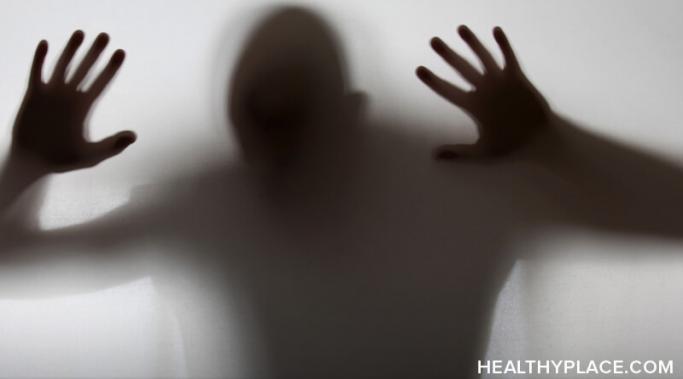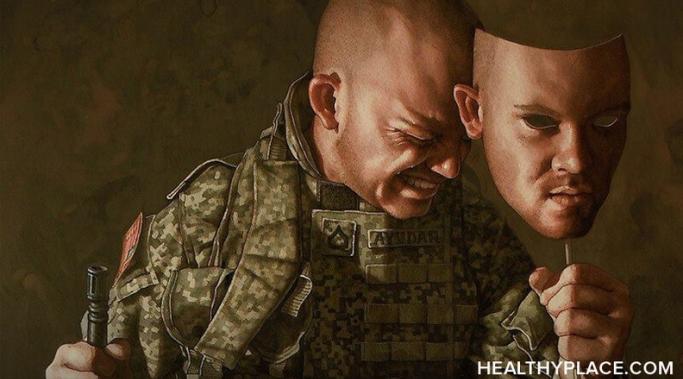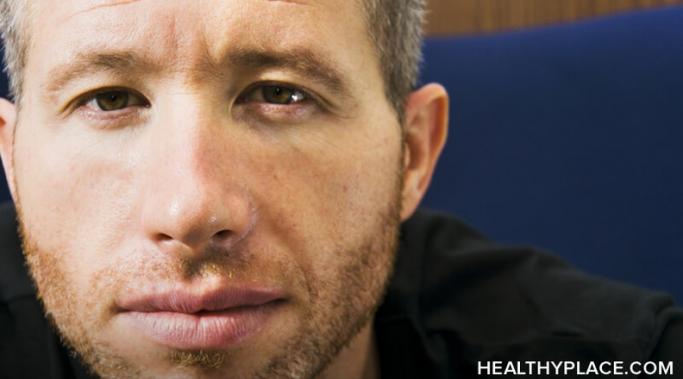Do you ever feel like you're in a mental fog, you can't think straight, or as though you have to labor to access even the simplest thoughts? I feel this way often, and it used to make me panic, like I was losing my mental faculties. Then I realized that "mental fog," aka "brain fog," (not clinical terms) or confusion can actually result from posttraumatic stress disorder (PTSD). Triggers, stress, and anxiety can heighten feelings of mental fog--leaving those of us with PTSD feeling even more vulnerable and confused during the very moments when we most need to feel safe and in control.
About PTSD
Posttraumatic stress disorder and psychosis? What do you think of when you hear the term "psychosis?" Most people know that it is a serious mental illness symptom that involves a radical disconnection from objective reality. Not everyone knows, however, that sometimes having posttraumatic stress disorder (PTSD) can lead to psychosis.
There are barriers to recovery from posttraumatic stress disorder (PTSD). Mental illness recovery often begins as an uphill battle. It doesn't help that aside from difficult symptoms, those of us living with one or more mental illness also have to combat stigma and wide-spread misinformation--all while navigating a mental healthcare system that often favors the wealthy. Recovery from PTSD is saddled with some very specific barriers. In fact, treatment resistance is actually a symptom of PTSD. If you or a loved one are struggling to recover from trauma, please hold back from judgement. There are reasons for treatment-resistant PTSD behaviors; you or your loved one are not at fault.
It's natural to ask, "Why me?" about your trauma and posttraumatic stress disorder (PTSD) but I have found purpose in my PTSD. I have found that when you are able to discover real meaning and purpose in the trauma that have happened to you, not only does it provide you with some peace of mind and a sense of accomplishment, but also helps with managing PTSD symptoms. Here are tips on finding purpose in your PTSD.
Complex PTSD (posttraumatic stress disorder) results from experiencing prolonged trauma, over which the person has little or no control, and from which escape seems hopeless. Many times, complex PTSD affects those who suffered ongoing physical, emotional, or sexual abuse during childhood and victims of long-term domestic violence.
The National Center for Posttraumatic Stress Disorder designated June as posttraumatic stress disorder (PTSD) Awareness Month in an effort to raise awareness, reduce PTSD stigma, and encourage people to seek help for posttraumatic stress disorder. The theme of the awareness campaign is "Learn, Connect, Share," so I thought it would be a good idea to talk about how we all can do those things to raise awareness about PTSD this month.
Reducing the stigma of posttraumatic stress disorder (PTSD) is something that we all can, and should, help in doing. If you are reading this post, then it's probably because you, or someone close to you, suffers from PTSD or some other type of mental illness. Those of us who are familiar with PTSD are, undoubtedly, also familiar with the stigma and discrimination that comes along with it. The good news is, there are things that we all can do to help reduce the stigmatization of PTSD sufferers.
Posttraumatic stress disorder (PTSD) is a complex disorder that can be hard to understand if you haven't experienced it first-hand, so there are things that people with PTSD want you to know. Even those of us who suffer from it sometimes have difficulty explaining it to others. We don't all have the same PTSD symptoms, and we don't all respond to the same kinds of PTSD treatment. However, while there can be a lot of differences in the way people with PTSD respond to past traumas and to their recovery, there is one thing that I think most of us can agree on: we wish others could better understand PTSD and the feelings and behaviors that come with it. Here are 10 things that people with PTSD want you to understand.
Deciding when to share your diagnosis of posttraumatic stress disorder (PTSD), and with whom, can be difficult to do. Even though talking about PTSD and seeking support from others is an important step toward recovery, choosing who and when to share your diagnosis of PTSD may be stressful and anxiety producing. The uncertainty of how others will react to hearing that you have a mental health issue can be as troubling as dealing with mental illness itself (Stigma Busting: Things Not to Say to Anxious People). There are some ways though, to decide who and when to tell about your PTSD diagnosis.
One of the biggest myths about posttraumatic stress disorder (PTSD) is that those who have PTSD have a mental weakness. I understand why people think that way. When I was plagued with flashbacks, nightmares and disruptive thoughts about my past trauma, I believed that was a sign of my mental weakness. But it is a myth that people with PTSD have mental weakness. As a matter of fact, we are some of the strongest people I know.









